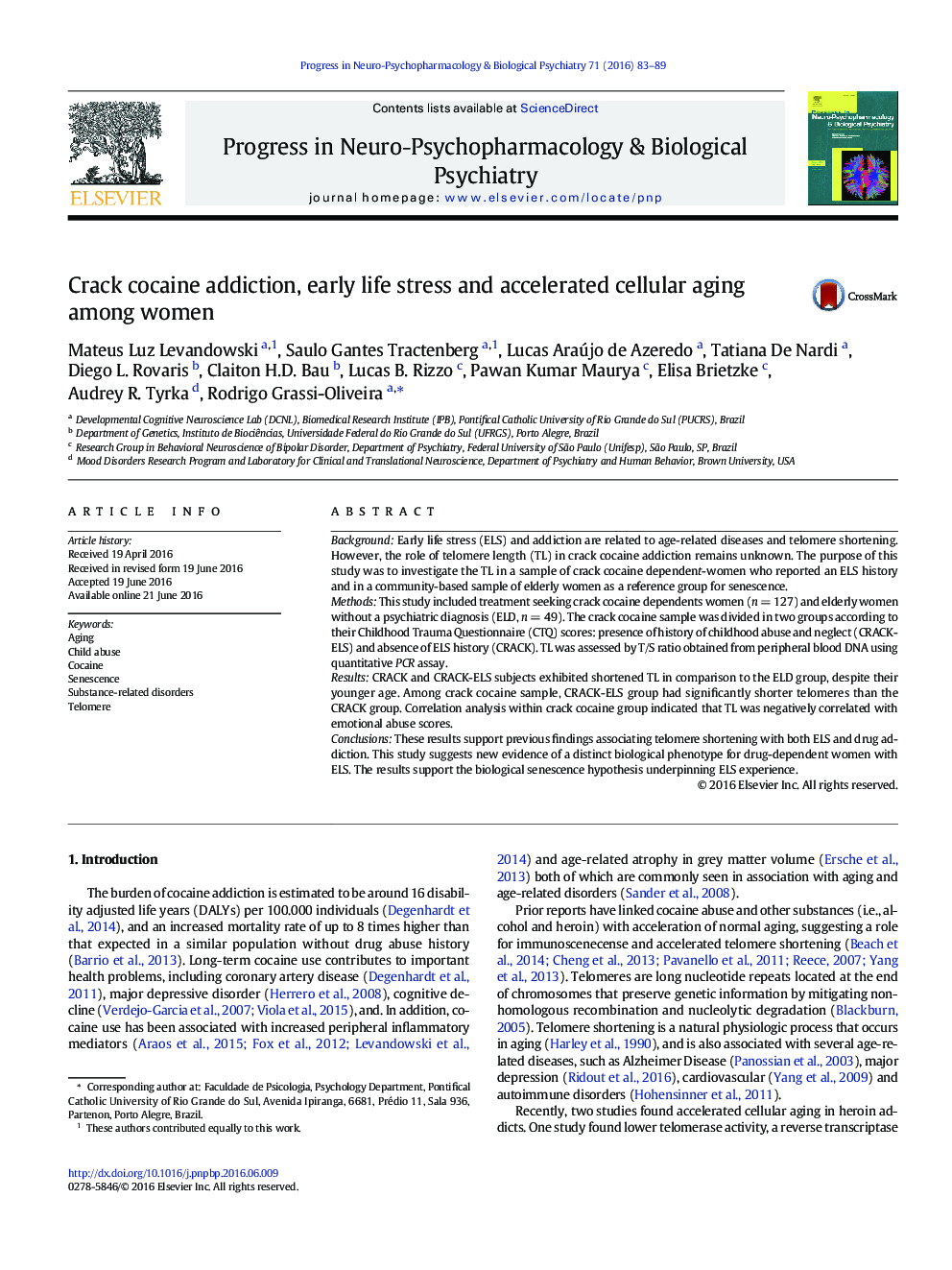| کد مقاله | کد نشریه | سال انتشار | مقاله انگلیسی | نسخه تمام متن |
|---|---|---|---|---|
| 2564634 | 1561023 | 2016 | 7 صفحه PDF | دانلود رایگان |
• Despite their younger age, crack cocaine dependents have shortened TL in comparison to the elderly individuals.
• Crack cocaine users with early life stress had shorter TL than the crack cocaine without such history.
• TL was negatively correlated with early life stress and craving symptoms severity.
BackgroundEarly life stress (ELS) and addiction are related to age-related diseases and telomere shortening. However, the role of telomere length (TL) in crack cocaine addiction remains unknown. The purpose of this study was to investigate the TL in a sample of crack cocaine dependent-women who reported an ELS history and in a community-based sample of elderly women as a reference group for senescence.MethodsThis study included treatment seeking crack cocaine dependents women (n = 127) and elderly women without a psychiatric diagnosis (ELD, n = 49). The crack cocaine sample was divided in two groups according to their Childhood Trauma Questionnaire (CTQ) scores: presence of history of childhood abuse and neglect (CRACK-ELS) and absence of ELS history (CRACK). TL was assessed by T/S ratio obtained from peripheral blood DNA using quantitative PCR assay.ResultsCRACK and CRACK-ELS subjects exhibited shortened TL in comparison to the ELD group, despite their younger age. Among crack cocaine sample, CRACK-ELS group had significantly shorter telomeres than the CRACK group. Correlation analysis within crack cocaine group indicated that TL was negatively correlated with emotional abuse scores.ConclusionsThese results support previous findings associating telomere shortening with both ELS and drug addiction. This study suggests new evidence of a distinct biological phenotype for drug-dependent women with ELS. The results support the biological senescence hypothesis underpinning ELS experience.
Journal: Progress in Neuro-Psychopharmacology and Biological Psychiatry - Volume 71, 3 November 2016, Pages 83–89
